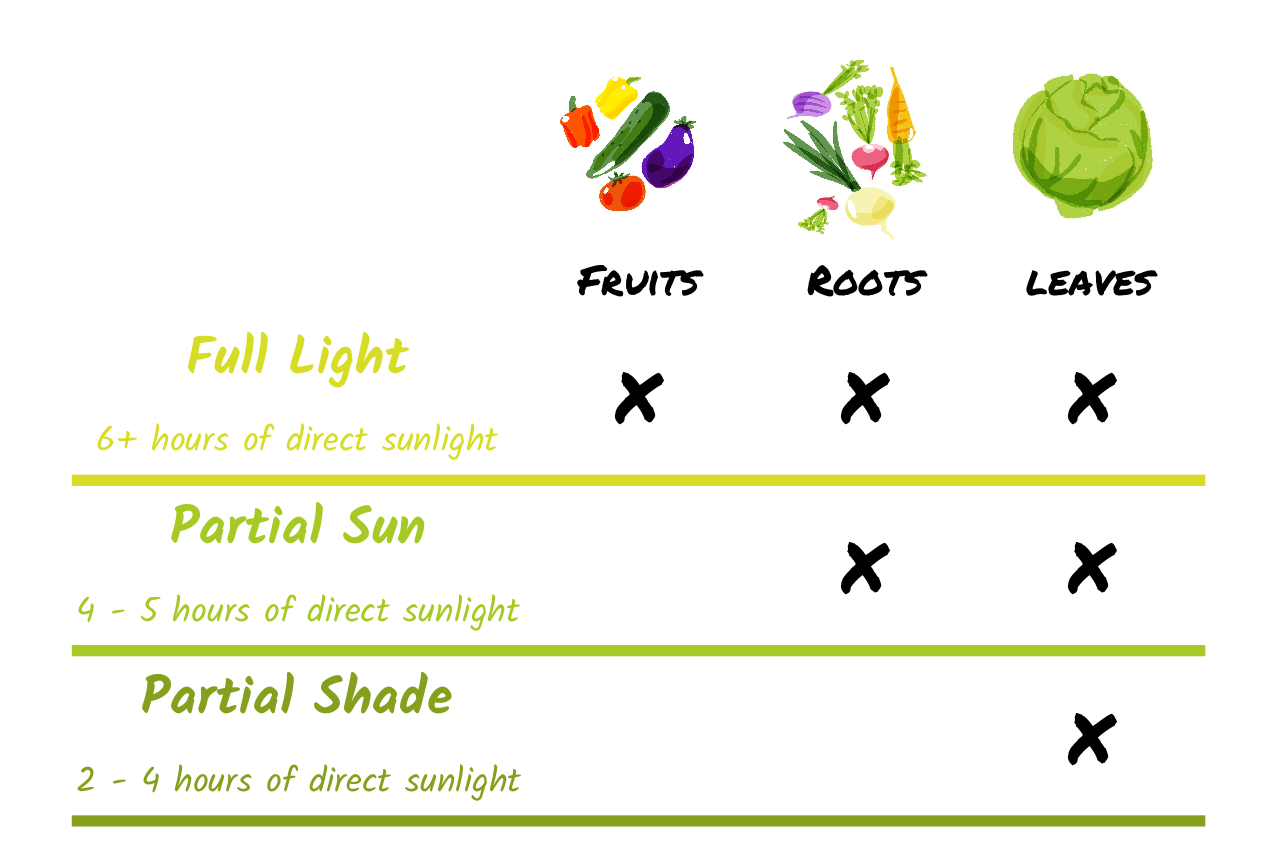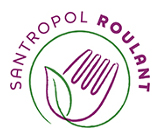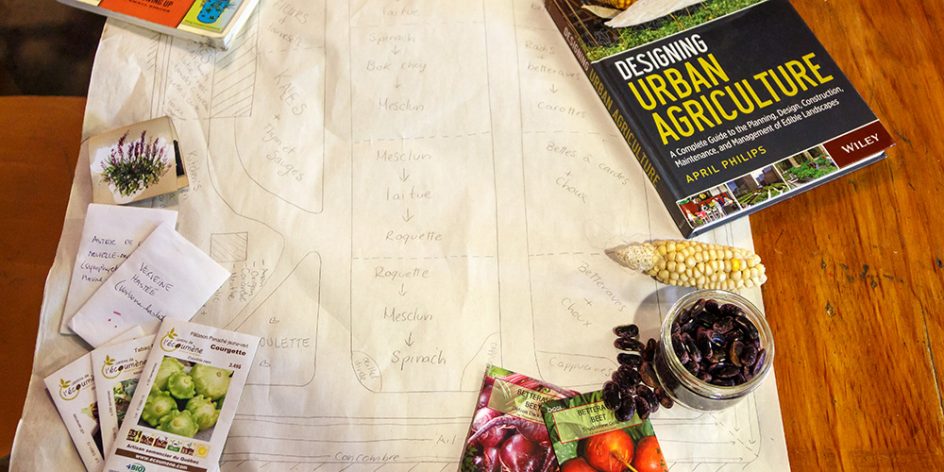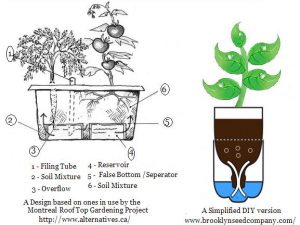Even if we are still in the middle of winter, it’s the time to think about what you’ll be growing next summer! Here are some tips and tricks from Marie-Anne, our urban agriculture manager, to help you in your planning for the next gardening season.
Find your gardening goals!
Is gardening more of a hobby, an activity to make your space greener or as a mode of food production? These are the first things you have to consider and this will help you to determine the next steps.
Where is your garden?
Knowing where you will be planting will make it much easier to determine the type of garden and what your needs are.
Soil
Do you have access to a plot of land? If yes, are you sure of the quality of the soil? If you answered no to one of these questions, it will be better for you to garden in containers.
There are many types containers: flowerpots, “Smart pots”, reusable containers as yogurt containers, recycling bins and barrels.
There are different types of agriculture that don’t require soil like hydroponic and aquaponic, but in this article, we will focus on gardens in soil that are in the ground or in a container.
However, I have to admit that my favourite container is the self-watering container created by Alternatives. It will soon be possible to come to one of our workshops on creating your own self-watering container in May!
Sunlight
It’s important as gardeners to observe the amount of sunlight that you have shining on your garden. That means the amount of time your garden receives light from the sun as well as the orientation of the sun.
The perfect amount of sunlight is naturally the maximum of hours of light that you can get, but to be more specific, the morning light is the best because it’s more direct. Also, the better orientation of the sun is from the South-East.
Depending on your type of sunlight, it will affect the type of vegetables you can grow: Water source
Water source
Do you have access to a source of water near your garden? Depending on the distance and area of your garden, a hose can become your best friend Otherwise, for smaller gardens, a watering can work wonders as well!
If you don’t have any water source near you, it’s very important to make one, for example by the installing a rain barrel.
Crops and varieties
The first question to ask is what’s your favourite vegetable? After that, the rest will depend on your gardening goals, your soil/container type, the space you have and the sunlight, as these will determine the most appropriate crop to plant.
These are some examples of families of crops to help you decide:
- The family of cabbages (cauliflower, broccoli, kale) don’t require a lot of sunlight like most of the leafy veggie family. They are very tolerant of the cold but they need a lot of space in your garden.
- The group named Curcubicacea, which includes cucumbers, melons and squashes, is very different. They need the maximum amount of sunlight but especially they need warmer temperatures to grow well. They also take up a lot of space and are quite demanding.
- The leaf-veggies (spinach, mesclun, lettuce, arugula), the roots-veggies (carrots, beets, radishes) and the bulb-veggies (leeks, onions and garlic) are all plants that don’t need a lot of sunlight, require small spaces and are quite easy to take care of (bulb-veggies are a little bit more demanding).
- The big family of Solanacea represent the typically most popular veggies that are tomatoes, eggplants, peppers, potatoes and more. They are very demanding vegetables in terms of sunlight or nutrients.
- The legumes, which are beans and peas, help in adding nitrate to the soil (an essential nutrient for all types of plants) and most of them need some support to climb. Easy to manage.
- Finally, the aromatic herbs (dill, basil, mint, parsley, thyme, sage, etc) need a minimum of eight hours of sunlight, but are relatively easy to grow and don’t need a lot of space (except for mint and oregano, which are invasive plants).
For more information in this subject, I suggest you have a look at the web sites of Agriculture Montréal (only in french), the Botanical Gardens of Montreal and the guideline for green rooftops from Alternatives.
Don’t forget that we will be offering gardening 101 and 102 workshops that can give you all the information that you need to become the best gardener! Learn more about upcoming workshops here.
Making your plan
It is important to take time to visualize your gardening plan for next year. With all the elements explained above, you can decide where you want to put your favourite crops considering their needs in the space.
Observe your space first to find out the amount of sunlight it receives and if it has any interesting support structures near your garden that could be nice for some plants (example: a fence where climbing peas can grow).
By making a plan each year, it will be possible for you to consult it year after year. This will allow you to note what worked well compared to what should be changed. This can help you plan and improve your garden by introducing, for example, crop rotations.
A good reference on this subject is Garden Planner.
Planting Calendar
Your calendar will help you start your seedlings and plant seeds at the right time throughout the growing season. It is your best ally. This horticultural calendar of the Botanical Garden is an excellent resource and is adapted to the climate of Montreal.
You will find dates to start your seedlings as well as dates to transplant them after the last freeze (usually around May 3rd in Montreal). Likewise, it’s important to note that not all crops need to be started as seedlings, many of them are called direct seedings. This means that you can simply plant the seeds directly in the ground. Coriander, beans, radish, carrots, beets, spinach, mesclun, and peas are all type of plants that don’t need to be transplanted first.
Sourcing your materials
If you missed the Seedy weekend, it’s not the end of the world because there are many other resources available at this time of the year. One of which is our own General Store, which will be selling seeds from the Tourne-Sol Co-operative Farm and other essential supplies (chicken manure, seedling soil, and potting soil).
Happy gardening! And remember to stay tuned for upcoming Urban Agriculture Workshops as the first one on starting seedlings is coming very soon!


